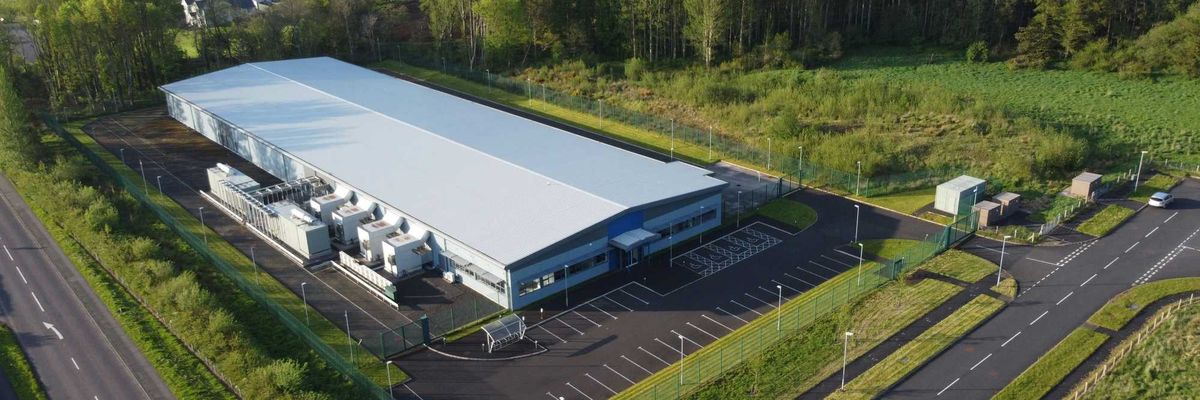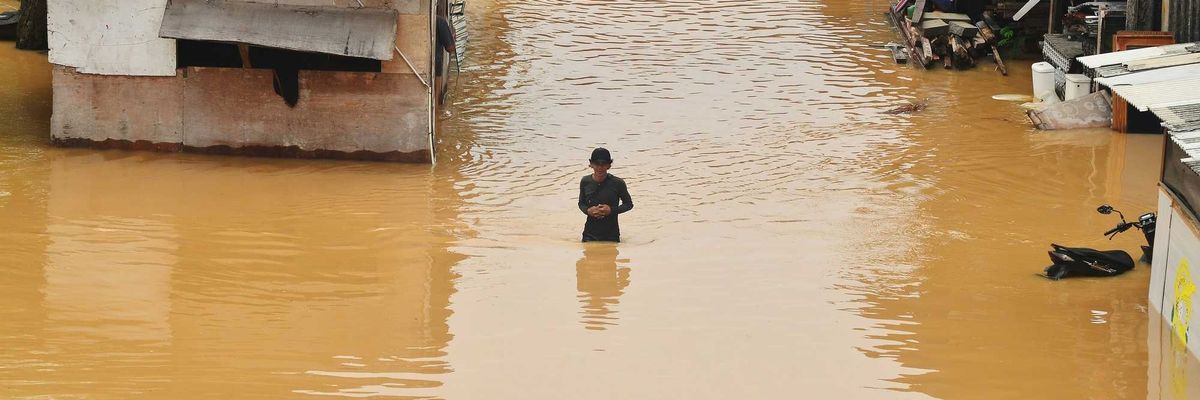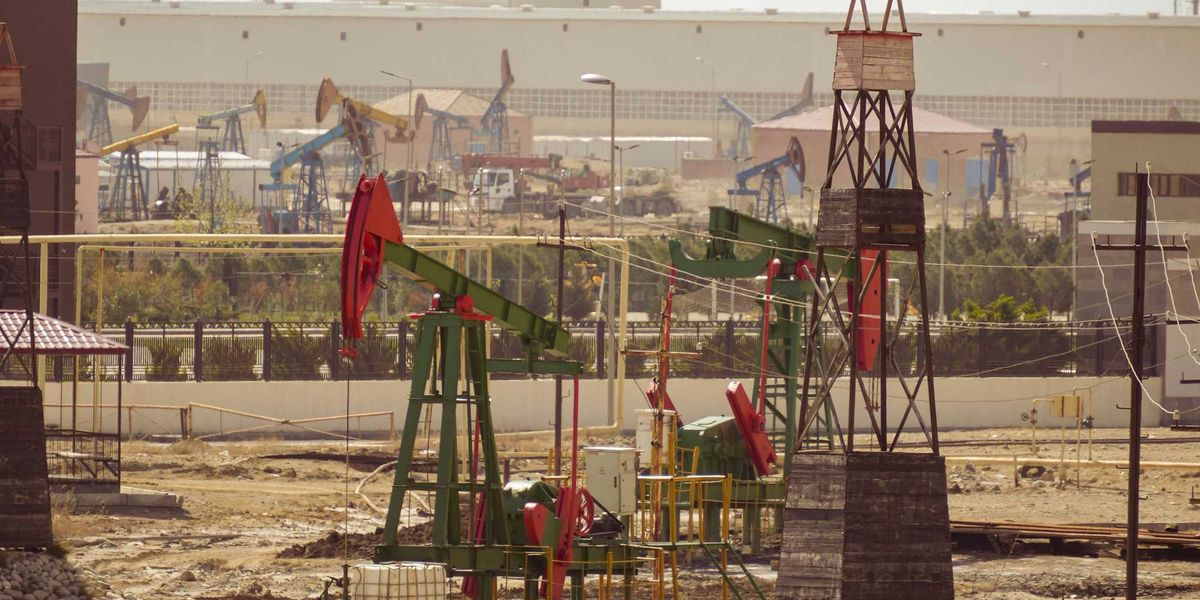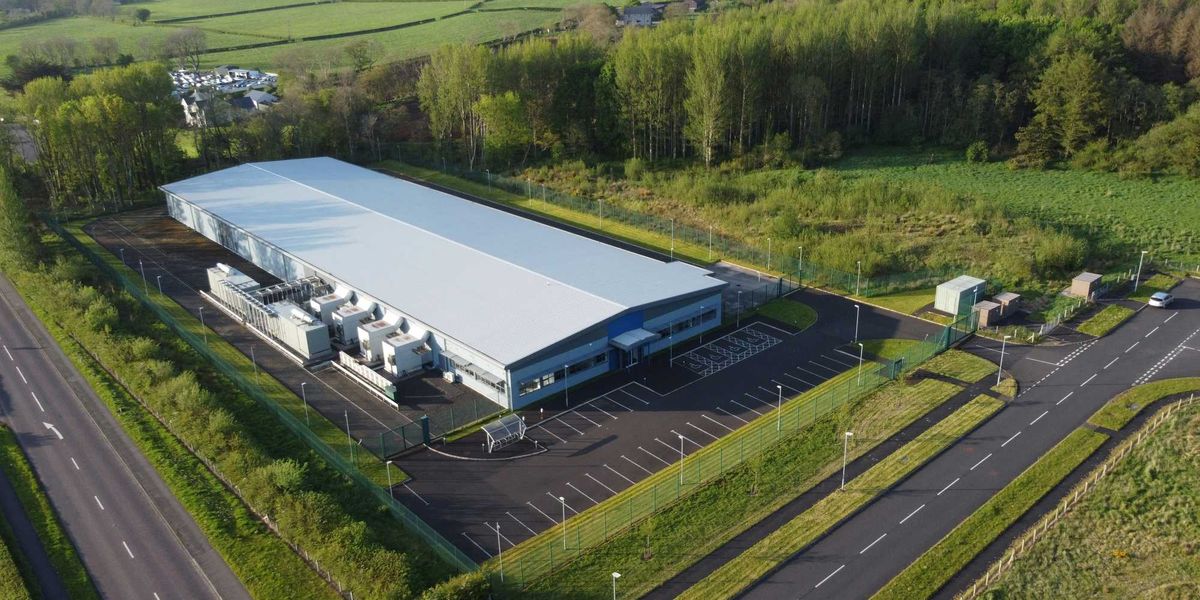economy
Republicans clash over keeping green subsidies from 2022 climate law
Republicans are divided on whether to keep the Inflation Reduction Act’s green energy tax credits, with growing support within the party to preserve these incentives despite opposition from conservatives.
In short:
- 18 House Republicans signed a letter asking Speaker Mike Johnson to keep energy tax credits from the Inflation Reduction Act.
- Some Republicans argue that the subsidies benefit their districts and support economic development, while others see them as wasteful spending.
- GOP leaders face pressure to decide on the future of these credits, particularly if they win the 2024 elections.
Key quote:
“We’ve seen industries that were against the Inflation Reduction Act now lobbying to keep the tax credits."
— John Podesta, White House climate adviser
Why this matters:
This debate highlights internal GOP conflicts over climate policy and the political balancing act between economic benefits and ideological opposition to government spending. The outcome may significantly impact the future of U.S. climate initiatives.
Related EHN coverage:
Ford shifts to smaller EVs, but will Americans follow?
Ford's new strategy of focusing on smaller electric vehicles challenges America's long-standing preference for larger cars, raising questions about consumer acceptance and the company's future profitability.
In short:
- Ford's pivot to smaller EVs is driven by the high cost of large electric vehicles, which require expensive batteries.
- American car buyers have traditionally favored bigger vehicles, complicating the shift toward compact EVs.
- Competition from smaller, affordable Chinese EVs could force U.S. automakers to adapt quickly.
Key quote:
“If we cannot make money on EVs, we have competitors who have the largest market in the world, who already dominate globally, already setting up their supply chain around the world. If we don’t make profitable EVs in the next five years, what is the future?”
— Jim Farley, CEO of Ford
Why this matters:
The success of Ford’s strategy could reshape the U.S. auto industry, influencing job markets, environmental outcomes and America's position in the global EV race.
Related:
US oil production hits record levels while jobs decline
Despite record oil and gas production in the U.S., job opportunities in the sector continue to decline due to increased efficiency and technological advancements.
In short:
- Oil production in the U.S. has reached an all-time high, with the country averaging 13.4 million barrels a day, yet employment in the oil and gas fields has decreased by nearly 20% from pre-pandemic levels.
- Technological innovations such as automated rigs and remote drilling have reduced the need for workers, leading to a more streamlined but smaller workforce.
- While job growth has slowed, the oil and gas industry continues to support related jobs in refineries, infrastructure and supply chains, contributing significantly to local economies.
Key quote:
“You just need fewer workers to produce more oil. When you need less workers, that’s a sign of growth. On the other hand, these are real people losing their jobs.”
— Greg Upton, executive director of Louisiana State University’s Center for Energy Studies
Why this matters:
The decline in oil and gas jobs amid rising production highlights a shift toward greater efficiency, which could affect employment in energy-dependent regions. As technology evolves, the industry may see further job reductions, impacting economic stability in key areas reliant on fossil fuel production.
Related EHN coverage:
EU wants China to contribute more to climate aid
The EU plans to urge China and other wealthy emerging economies to increase their financial contributions to climate action during the COP29 summit.
In short:
- The EU's draft position for COP29 seeks contributions from newly wealthy nations to aid developing countries in climate action.
- China, the world's second-largest economy and top greenhouse gas emitter, is a focus for increased financial support.
- The EU emphasizes that most of the required investment should come from private sources, not national budgets.
Key quote:
"Such broadening of contributions provides an opportunity to increase the finance to support the most vulnerable countries and communities and reflects strong global solidarity towards them."
— Draft of the EU's COP29 position document
Why this matters:
Encouraging contributions from China and other emerging economies could significantly boost funding for climate initiatives. As climate change impacts intensify, equitable financial support is crucial to aiding vulnerable nations in mitigating and adapting to global warming challenges.
Biden's heat protection rule leaves public sector workers at risk
A loophole in a 1972 law prevents about 7.9 million public-sector workers from receiving OSHA's proposed heat protections.
In short:
- Congress passed a law in 1972 excluding public workers from OSHA protections, leaving millions vulnerable to workplace injuries and heat-related risks.
- OSHA's new heat rule mandates private employers provide water and rest breaks, but public workers in 23 states remain unprotected.
- Public-sector workers have nearly double the injury rate of private-sector workers, highlighting the need for comprehensive safety regulations.
Key quote:
"If they aren’t covered by OSHA, they have no right to a safe workplace. If someone gets hurt or killed, there is no investigation, no citation, no lessons learned."
— Jordan Barab, former OSHA deputy assistant secretary
Why this matters:
The exclusion of public workers from OSHA protections can result in higher injury rates and potential fatalities, especially in extreme heat. Ensuring all workers are protected can prevent unnecessary deaths and injuries.
Heavier flooding puts many small businesses at risk
The increasing frequency and severity of floods across the US are pushing small businesses to the brink, with many one disaster away from closure.
In short:
- Root Hill Cafe in Brooklyn faces frequent flood damage, losing about $3,500 in sales and employee pay for each day closed.
- Small businesses nationwide struggle with high flood insurance costs and insufficient coverage, as seen in Vermont's $300 million flood damage last summer.
- Experts urge infrastructure upgrades and better flood risk transparency to support small businesses.
Key quote:
“We are constantly checking the weather... If we see that there’s a hurricane in Florida, it’s like, oh my God, please let it not come here.”
— Alejandra Palma, co-owner of Root Hill Cafe
Why this matters:
Flooding threatens the survival of small businesses, which employ nearly half of US workers and contribute significantly to the economy. Communities are calling for greater support from both state and federal governments, emphasizing the need for improved flood defenses, better urban planning, and more accessible disaster relief funds. Advocates argue that proactive measures, such as investing in green infrastructure and restoring natural floodplains, could mitigate future risks.
Biden announces $1.7 billion to support US EV factories
The Biden administration is providing $1.7 billion to retool 11 auto factories for electric vehicle production, aiming to secure jobs and support union labor.
In short:
- The Energy Department's funding aims to prevent the closure of unionized auto plants and save over 15,000 jobs.
- This initiative is part of Biden’s strategy to boost EV production before the November election, countering potential policy reversals if Trump wins.
- The largest allocation, $500 million, goes to General Motors in Lansing, Michigan, to shift from internal combustion engines to EVs.
Key quote:
“Building a clean energy economy can and should be a win-win for union autoworkers and automakers. This investment will create thousands of good-paying, union manufacturing jobs and retain even more — from Lansing, Michigan to Fort Valley, Georgia — by helping auto companies retool, reboot and rehire in the same factories and communities.”
— Joe Biden, President of the United States
Why this matters:
This funding supports the transition to electric vehicles, crucial for reducing greenhouse gas emissions. It also aims to secure jobs in an evolving auto industry, promoting economic stability in key states.









